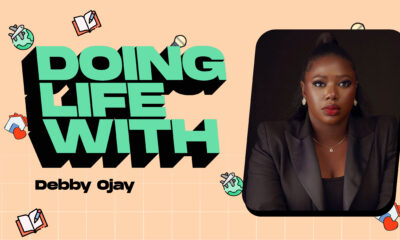Features
World Diabetes Day 2019: Read the Winning Story in the MissBloodSugar Diabetes Competition
In September, a healthcare organization, MissBloodSugar, made a call for submission for stories of people to create awareness for diabetes. Today, November 14, is World Diabetes Day and we’re happy to announce the winner of the competition. Waliyah Oladipo‘s story is titled ‘A Peek Into My Mother’s Mind’.
***
When the doctors told me what I had been eating was eating me, I did not think too much of it. How was I to know that when some things touch you, they don’t graze? They fight and cling and claim ownership. When diabetes hit me, it slowly ate me, till there was nothing left.
My husband was not at home, there was not much time to be; between manning the borders of Cotonu and running off to Ijebu, to the arms of his mistress. And my children were too young to fully grasp the ways in which our lives were to change. It was easier for me to slip into denial, since the two of them were away at boarding school. I prayed to God, the way I pray about all things. Ya Allah, cure me, this is nothing beyond your power. Raise my head above water level.
But three years later, I sank. It didn’t start with the sinking, ironically, I became a light weight first. It started with the comments from the Yoruba traders beside my shop.
“Why is your dress sagging so badly?”
“The breeze will soon blow you away, Iya Tala.” And there were tailors who saucily said, “It is your shoulder that is not giving the cloth fitting o.”
One hot day, I collapsed in the middle of my shop.
“Doctor, why?” I asked in the hospital.
My life of medications began. I said goodbye to tasty meals; to tuwo shinkafa and kuskus. I squeezed my face and spoilt my mouth because what I made for my customers at the restaurant had become anathema. Abhorrent. But it didn’t stop the collapsing. Once every three months, I was rushed to the hospital and my husband and my kids hovered over me with eyes full of fear and mouths heavy with words that remain unsaid. Their hands shook, even my baby, Daoda, too young to know how close death hovered, but old enough to smell the air of impending doom.
My husband did not say, but money was slipping through our fingers like salt. The border where my husband worked was reserved for unerring officers. He did not talk but I could see him involuntarily calculating what would be left for the children’s bills. So whenever I broke down, it was in silence. I held my prayer bead, lashed out at God, and ignored the curious knocks of my landlady. Each time I cried, I worried for my children, that they would become strangers in their own home. I also worried for my husband, not because he was the father of my children. I lingered, my home far away, and hung onto hazy visions of my childhood. I remembered my restaurant; when I woke up each morning to open it.
It is strange how we notice things when we suffer alone. I noticed the mold growing on the furniture. I noticed the awkward silences of my neighbours and tried to fill it with quiet smiles. I learnt Yoruba, more than I ever had. I noticed other people who suffered, some who owned their illness, living with it as if they had reached an amicable agreement. They made me envious; driving in their jeeps for PTA meetings, visiting neighbours and signing contracts, knowing the sickness they nursed would stay at bay just as they wanted, for another year and even another.
When the storm began, I almost sighed in relief. There was the raw, excruciating pain, the haziness of drugs, the denial of farewell as I was moved from a hospital in Ibadan to Kaduna, the absence of déjà vu when I returned to the arms of my birth city. It hurt me, but there was a finality to it I craved. My first daughter changed university to be with me, starting all over again. Her passion poured through tears, stretching her robust form. She cracked jokes and showed me funny pictures on the internet. Her friends called, giving innocent and innocent and awkward words of consolation. My Tala cooked, she cleaned, she bore the words of the doctor, she saw the prices of medication. I watched grief cling to her and knew she would never fully shed it.
There are things that hit us hard, go from skin to blood to bone and leave us depleted, bereft of hope. The night before my death, I had my third cardiac arrest but was soon stabilized. Doctors, I learnt, are good at leaving you hanging but never letting you go. But I knew I was never theirs to let go of. I stared hard at my stepchildren’s picture, which I had stolen from my husband. I called Tala, told her to embrace them. I called the mistress in Ilorin and I spent long hours praying for the children. Then I called my Daoda, but I could not say much. There was some point during the night when Tala snored softly by my bedside and I realized I could have done better, I could have fought for my body, for my life and all I had. When I closed my eyes, I knew the next time it opened, I would be in a foreign place.
For my diabetes stories go to, www.missbloodsugar.com





















